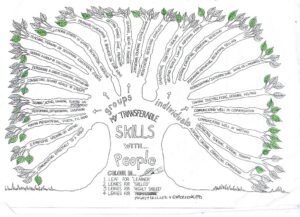What is Your Definition of Love – Love, a powerful and enigmatic emotion, has captivated humanity for centuries. It is a universal concept that transcends cultural boundaries, inspiring poets, artists, and philosophers throughout history. Love encompasses a vast array of emotions, experiences, and expressions that make it a complex and multifaceted phenomenon. In this article, we will delve into the intricate nature of love, exploring its various forms, manifestations, and challenges, ultimately aiming to gain a deeper understanding of this extraordinary human experience.
What is Your Definition of Love / What is Your Definition of Love / What is Your Definition of Love / What is Your Definition of Love / What is Your Definition of Love / What is Your Definition of Love / What is Your Definition of Love
Introduction
What is Love?
Love defies a singular definition due to its subjective and elusive nature. It is an emotional state characterized by intense affection, deep attachment, and a genuine concern for the well-being of others. Love can manifest in diverse relationships, such as romantic partnerships, familial connections, and friendships. It is an integral part of the human experience, enriching our lives and shaping our perceptions of the world.
The Complex Nature of Love
Love is a complex amalgamation of emotions, thoughts, and behaviors that intertwine to create a profound human experience. It is a blend of joy, happiness, empathy, and compassion, accompanied by vulnerability and a willingness to open one’s heart to another. Understanding the complexities of love requires exploring its dimensions through psychological, cultural, and philosophical lenses.
Exploring Love
Love as an Emotion
Love can be understood as an emotion, a powerful force that influences our thoughts, actions, and overall well-being. It has the ability to evoke intense feelings of passion, desire, and affection, shaping our perceptions and interactions with others. Love’s emotional aspect is closely intertwined with our personal experiences, memories, and beliefs, making it a deeply subjective phenomenon.
The Multidimensional Aspects of Love
Love extends beyond its emotional realm, encompassing various dimensions that contribute to its complexity. These dimensions include cognitive, behavioral, and social components. Cognitive dimensions involve our thoughts, beliefs, and perceptions related to love. Behavioral dimensions encompass the actions and behaviors we exhibit to express love, while social dimensions examine how love is shaped by cultural norms, societal expectations, and interpersonal dynamics.
Love and Human Psychology
Psychology plays a significant role in understanding love. Researchers have explored the psychological mechanisms behind attraction, attachment styles, and the dynamics of long-term relationships. Love activates reward centers in the brain, releasing hormones and neurotransmitters that contribute to feelings of pleasure and attachment. Attachment theory suggests that our early experiences with caregivers shape our ability to form and maintain healthy relationships, influencing our understanding and expression of love.
Cultural Perspectives on Love
Love is not solely influenced by individual psychology but is also influenced by cultural contexts. Different cultures have unique norms, values, and traditions that shape their understanding and expression of love. For example, some cultures prioritize arranged marriages based on compatibility and shared values, while others emphasize the freedom of choice and passionate romantic love. Exploring cultural perspectives on love broadens our understanding of its diverse manifestations and interpretations.
The Different Types of Love
Romantic Love
Romantic love is perhaps the most well-known and celebrated form of love. It is characterized by a deep emotional and sexual attraction between two individuals. Romantic love encompasses various subtypes, each highlighting different aspects of this complex emotion.
Eros Love
Eros love, often associated with passionate and intense romantic relationships, involves strong physical and emotional desire. It is marked by infatuation, heightened emotions, and a profound sense of connection with the loved one. Eros love often fuels the early stages of a romantic relationship, characterized by the intensity of attraction and a strong desire for physical intimacy.
Storge Love
Storge love is the affectionate and nurturing love found in familial relationships. It is the bond between parents and children, siblings, and other family members. Storge love is rooted in care, support, and a sense of belonging. It often grows over time through shared experiences and emotional connections.
Pragma Love
Pragma love, also known as practical love, is characterized by a pragmatic and logical approach to relationships. It involves seeking compatibility, shared goals, and long-term compatibility in a partner. Pragma love emphasizes practicality and the potential for a stable and fulfilling partnership.
Agape Love
Agape love is selfless and unconditional love, often associated with compassion, empathy, and altruism. It transcends personal desires and expectations, focusing on the well-being and happiness of others. Agape love is often found in charitable acts, acts of kindness, and acts of service to humanity.
Familial Love
Familial love encompasses the deep bonds and connections within a family unit. It includes the love between parents and children, between siblings, and among extended family members. Familial love is built on unconditional acceptance, support, and a sense of belonging.
Platonic Love
Platonic love refers to non-sexual, non-romantic relationships characterized by deep emotional bonds and intellectual connections. It often exists between friends who share mutual trust, understanding, and respect. Platonic love is marked by companionship, loyalty, and a sense of camaraderie.
Self-Love
Self-love is the foundation of all forms of love. It involves accepting oneself, recognizing one’s worth, and nurturing one’s physical, mental, and emotional well-being. Self-love is crucial for establishing healthy relationships and experiencing love in its fullest capacity.
The Manifestations of Love
Expressing Love through Actions
Love is not merely confined to words or feelings but is often expressed through actions that demonstrate care, affection, and support.
Acts of Service
Acts of service involve performing thoughtful deeds to show love and support to others. It can be as simple as helping with household chores, running errands, or offering a lending hand in times of need. Acts of service communicate love through tangible actions and selfless acts.
Words of Affirmation
Words have the power to uplift, encourage, and express love. Words of affirmation involve using kind, loving, and appreciative language to convey affection, admiration, and support to our loved ones. Whether through compliments, praise, or heartfelt expressions, words of affirmation have the ability to strengthen relationships and foster emotional connection.
Quality Time
Spending quality time with loved ones is a powerful way to express love. It involves dedicating undivided attention and being fully present in the moment. Quality time allows for deep conversations, shared experiences, and creating lasting memories, all of which contribute to building strong bonds and nurturing love.
Receiving Gifts
Gift-giving is a common love language that involves selecting and presenting meaningful and thoughtful gifts to express love and appreciation. It is not about the material value of the gift but the sentiment and thoughtfulness behind it. Gifts can symbolize love, care, and understanding, serving as a tangible reminder of the connection between individuals.
Physical Touch
Physical touch is a powerful form of non-verbal communication that can convey love, comfort, and intimacy. It includes gestures such as hugs, kisses, holding hands, or gentle touches. Physical touch has the ability to strengthen emotional bonds, provide reassurance, and create a sense of security and closeness.
Love in Relationships
Love and Intimacy
Love and intimacy are intricately connected, forming the foundation of deep, meaningful relationships. Intimacy involves emotional closeness, vulnerability, and a sense of deep connection with another person. Love nurtures and sustains intimacy, fostering trust, understanding, and a sense of shared purpose.
Building Strong Relationships
Strong relationships require effort, commitment, and effective communication. They involve nurturing love through acts of kindness, mutual respect, and active listening. Building strong relationships also entails cultivating shared interests, maintaining healthy boundaries, and fostering trust and emotional safety.
Love Languages in Relationships
Understanding love languages can significantly enhance relationships. Love languages refer to the different ways individuals give and receive love. By identifying and understanding each other’s love languages, couples can communicate and express love in ways that resonate deeply with their partner, strengthening their bond.
Nurturing Love over Time
Love evolves and deepens over time. Nurturing love in long-term relationships requires continued effort, attention, and adaptability. It involves cultivating shared experiences, prioritizing emotional connection, and finding ways to keep the spark alive. Nurturing love over time also requires embracing growth, embracing change, and supporting each other’s individual development.
The Challenges of Love
Love and Vulnerability
Love and vulnerability go hand in hand. Opening oneself up to love means exposing oneself to the possibility of hurt and disappointment. The fear of rejection and the fear of being hurt can sometimes hinder our ability to fully experience and express love. However, embracing vulnerability is essential for building deep connections and experiencing the true beauty of love.
Fear of Rejection
Fear of rejection can be a significant obstacle in experiencing and expressing love. It stems from a fear of not being accepted, valued, or reciprocated. Overcoming this fear involves building self-confidence, fostering self-love, and recognizing that rejection does not define our worth. It also involves taking risks, being authentic, and accepting that not all connections will work out, but that doesn’t diminish the value of love.
Overcoming Trust Issues
Trust is the foundation of any healthy relationship, but past experiences or betrayals can create trust issues that affect our ability to love and be loved. Overcoming trust issues requires open communication, honesty, and a willingness to rebuild trust. It involves addressing past wounds, setting boundaries, and gradually building trust through consistent actions and transparency.
Balancing Independence and Interdependence
Finding the balance between independence and interdependence is crucial in relationships. While maintaining individuality and personal growth is important, love also requires a willingness to compromise, support, and prioritize the needs of our partners. Balancing independence and interdependence involves fostering healthy boundaries, effective communication, and respecting each other’s autonomy while nurturing the connection.
Conclusion
Love, with its intricate and multifaceted nature, enriches our lives and provides us with profound experiences of connection, joy, and growth. It is an emotion that transcends cultural boundaries and encompasses various forms, from romantic and familial love to platonic and self-love. Expressing love through acts of service, words of affirmation, quality time, receiving gifts, and physical touch strengthens relationships and nurtures emotional bonds. However, love is not without its challenges. Overcoming fear, building trust, and finding the balance between independence and interdependence are crucial for cultivating healthy and fulfilling relationships.
In the end, love is a remarkable and transformative force that has the power to bring immense happiness, fulfillment, and meaning to our lives. It is a journey of self-discovery, vulnerability, and growth. So, let us embrace love, nurture it with care, and celebrate its extraordinary capacity to uplift and unite us.
FAQs
Can love change over time?
Yes, love can evolve and change over time. As individuals grow and go through different life stages, their experiences, priorities, and perspectives may shift, which can impact the nature and dynamics of love within a relationship. However, with open communication, mutual understanding, and a willingness to adapt, love can transform and deepen, becoming even more profound and meaningful.
Is it possible to love more than one person at the same time?
Yes, it is possible to love more than one person at the same time. Love is not limited to a single individual. People are capable of forming deep emotional connections with multiple individuals, whether in romantic or non-romantic relationships. However, the dynamics and expectations surrounding multiple loves can vary, and open and honest communication is crucial in navigating such situations.
Can love exist without physical attraction?
Yes, love can exist without physical attraction. While physical attraction is often an initial component of romantic love, love itself is not solely based on physical appearance. Emotional connection, compatibility, shared values, and deep emotional intimacy can form the foundation of love, even without a strong physical attraction. Love is a complex interplay of various factors, and each individual’s experience of love is unique.
How can I know if I’m truly in love?
Knowing if you’re truly in love can be a deeply personal experience. Signs of being in love often include a profound emotional connection, a desire for the happiness and well-being of the other person, a sense of joy and fulfillment in their presence, and a willingness to invest time, effort, and support in the relationship. However, it is essential to remember that love can manifest differently for different people, and trusting your own feelings and intuition is key in determining the authenticity of your emotions.
Can love survive long-distance relationships?
Yes, love can survive and thrive in long-distance relationships. While distance poses unique challenges, maintaining open communication, trust, and emotional connection can help sustain love across physical distance. Regular communication, planned visits, and finding ways to create shared experiences despite the distance are essential in nurturing love in long-distance relationships.




